In a significant legal development, the Karnataka High Court has denied X Corp’s plea for interim relief against the Karnataka government’s decision to block access to certain content on the Sahyog portal, a digital platform designed for public grievance redressal.
Representative Image (iStock)
In a significant legal development, the Karnataka High Court has denied X Corp’s plea for interim relief against the Karnataka government’s decision to block access to certain content on the Sahyog portal, a digital platform designed for public grievance redressal. The decision was delivered after an extensive hearing, where arguments from both sides were scrutinized in detail.
Background of the Case
The case centers on the Karnataka government's decision to impose content restrictions on the Sahyog portal, invoking provisions under the Information Technology Act, 2000. X Corp, the parent company of the social media platform X, challenged the order, alleging that the blocking mechanism was excessive, lacked transparency, and violated fundamental rights under the Constitution of India.
The Sahyog portal, intended to facilitate citizen grievances, was blocked on grounds of misuse, including allegations of spreading misinformation and illegal content. Critics, including digital rights advocates, have argued that such restrictions curtail freedom of expression and undermine the digital public sphere.
X Corp’s Arguments
Represented by senior counsel KG Raghavan, X Corp contended that the blocking orders were arbitrary and disproportionate. The company argued that the mechanism failed to meet the criteria of "reasonable restrictions" under Article 19(2) of the Constitution, emphasizing that blocking access to the entire platform rather than specific unlawful content was a violation of users’ fundamental rights.
KG Raghavan stated: “The interim prayer is innocuous. It does not adversely affect any concern expressed by the Union of India. The concern of the Union of India is legitimate—no one can refuse to comply with the laws of this country. If you want to do business here, you must comply. We are on the same side, ensuring nothing adversely affects the country. All we are saying is—the law is completely codified in Section 69A of the IT Act.”
X Corp pointed out procedural lapses, arguing that the government had not adhered to due process as prescribed under Section 69A of the IT Act. The abrupt blocking, the company claimed, disrupted critical communication and service delivery through the portal, impacting users and businesses dependent on the platform.
Karnataka Government’s Defense
The state government, represented by Advocate General Tushar Mehta, defended the blocking orders, asserting that the platform was misused for illegal activities, including disseminating inflammatory and objectionable content. The state’s counsel maintained that the blocking mechanism was vital for maintaining public order, ensuring national security, and curbing misinformation.
Citing legal provisions, the state argued that the measures were taken following due process, with investigations and consultations with relevant agencies. The government insisted that digital platforms must comply with Indian laws and cannot claim blanket immunity under the guise of free speech.
The High Court’s Decision
Justice Nagaprasanna, after examining the arguments, concluded that X Corp had not established a prima facie case for interim relief. The court emphasized the necessity of balancing individual rights with national security and public order, underscoring the judiciary’s caution in matters involving digital platforms.
The court refused to stay the government’s order but directed the state to provide a detailed justification for the legality and necessity of the blocking mechanism. The next hearing is scheduled for [insert date].
Expert Opinions and Implications
Legal experts suggest that this case could set a precedent on the extent of governmental powers in regulating online platforms in India. The ruling highlights the challenge of balancing digital rights with lawful regulation. Advocates for digital freedom argue that unchecked blocking orders could lead to censorship, stifling dissent and public debate.
This decision is likely to reignite discussions on content regulation in India, particularly regarding the IT Rules, 2021, which critics claim grant sweeping powers to the government.
As the case proceeds, the Karnataka High Court’s final judgment could shape the future of free speech and platform regulation in the digital age. The outcome may influence how tech companies operate in India, impacting future cases on censorship, online rights, and state control over digital platforms.
 Vaani Kapoor breaks silence on her film Abir Gulaal co-starring Fawad Khan getting banned in India: 'This whole cancel culture...'
Vaani Kapoor breaks silence on her film Abir Gulaal co-starring Fawad Khan getting banned in India: 'This whole cancel culture...' DNA TV Show: Israel to 'tear up' Donald Trump's vision for Syria with Damascus strikes?
DNA TV Show: Israel to 'tear up' Donald Trump's vision for Syria with Damascus strikes? India strengthens defence with successful launch of Prithvi-II, Agni-I missiles
India strengthens defence with successful launch of Prithvi-II, Agni-I missiles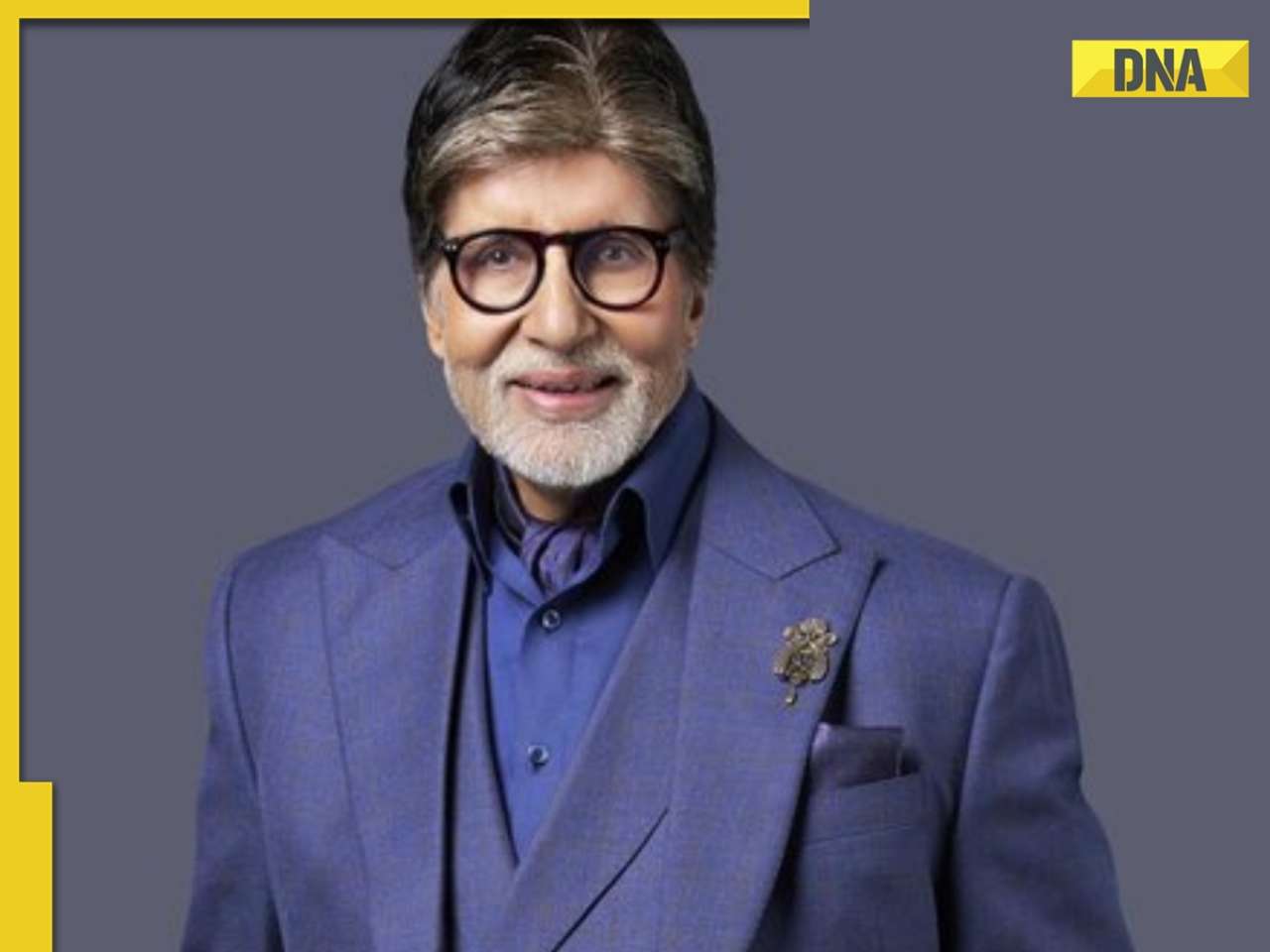 Kaun Banega Crorepati 17: Amitabh Bachchan's quiz show to premiere on this date, KBC 17 tagline is...
Kaun Banega Crorepati 17: Amitabh Bachchan's quiz show to premiere on this date, KBC 17 tagline is... Not Jasprit Bumrah! India coach hails THIS 31-year-old pacer as team's 'Lion'
Not Jasprit Bumrah! India coach hails THIS 31-year-old pacer as team's 'Lion' Russian Woman's Israeli Partner Makes Shocking Claims, Says 'A Daughter Was Born In Goa Cave!'
Russian Woman's Israeli Partner Makes Shocking Claims, Says 'A Daughter Was Born In Goa Cave!' Delhi Earthquake News: Jhajjar Jolted by Third Quake in a Week, NCS Shares Data | Breaking News
Delhi Earthquake News: Jhajjar Jolted by Third Quake in a Week, NCS Shares Data | Breaking News Odisha Bandh Today | Congress-Led Odisha Bandh: What You Need to Know? | Odisha News | College Row
Odisha Bandh Today | Congress-Led Odisha Bandh: What You Need to Know? | Odisha News | College Row Amarnath Yatra News: Why Amarnath Yatra Suspended From Pahalgam Today? | Baltal Base Camp | Rainfall
Amarnath Yatra News: Why Amarnath Yatra Suspended From Pahalgam Today? | Baltal Base Camp | Rainfall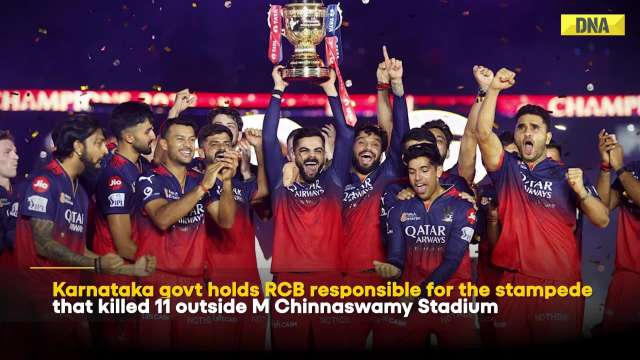 Bengaluru Stampede: Karnataka Blames RCB For Stampede, Cites Virat Kohli's Video
Bengaluru Stampede: Karnataka Blames RCB For Stampede, Cites Virat Kohli's Video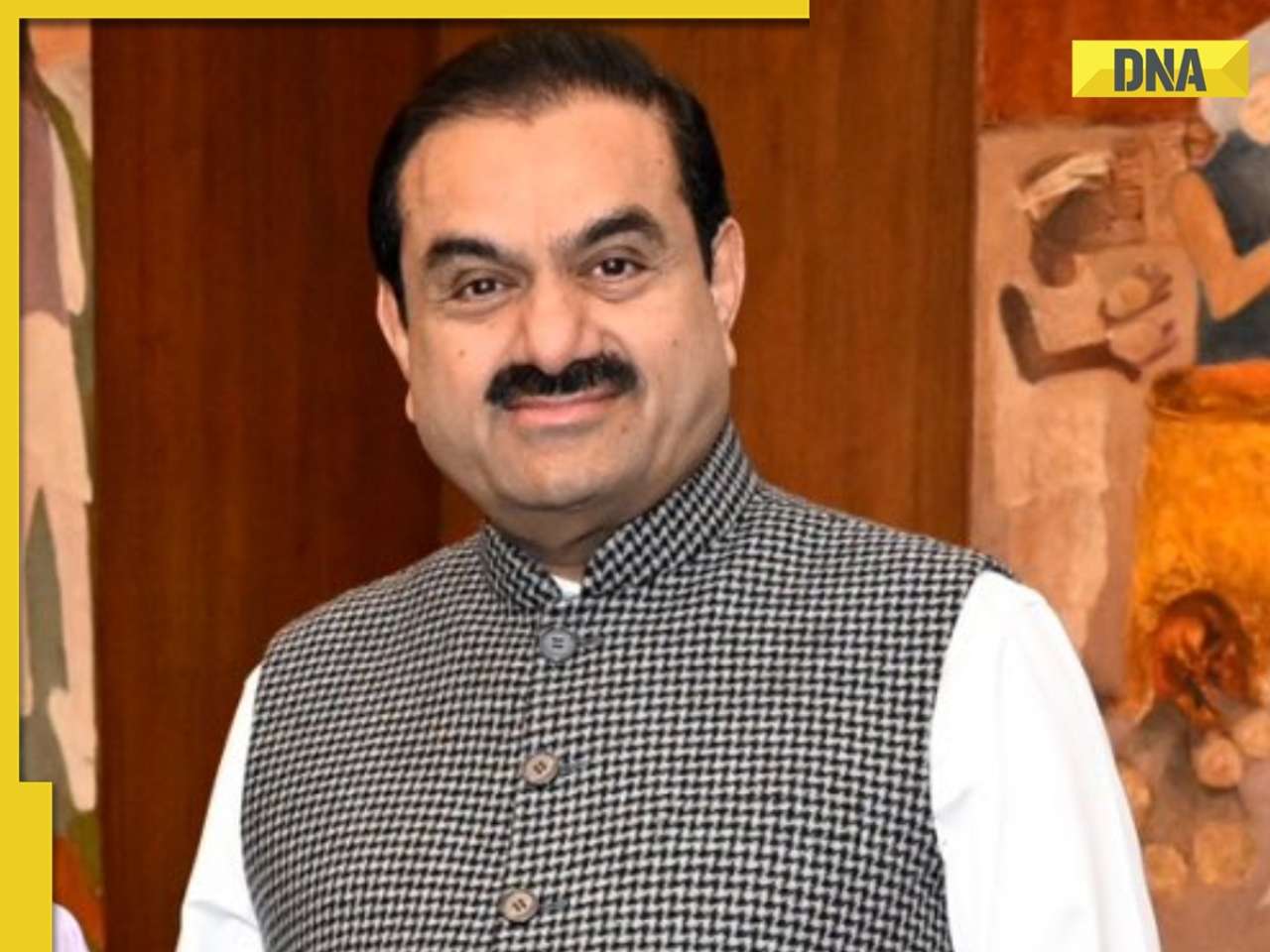 Indian billionaire Gautam Adani gets richer by Rs 7150 crore after selling 20% stake in...
Indian billionaire Gautam Adani gets richer by Rs 7150 crore after selling 20% stake in... SHOCKING! Microsoft lays off popular game 'Candy Crush' developers due to..., set to be replaced by...
SHOCKING! Microsoft lays off popular game 'Candy Crush' developers due to..., set to be replaced by...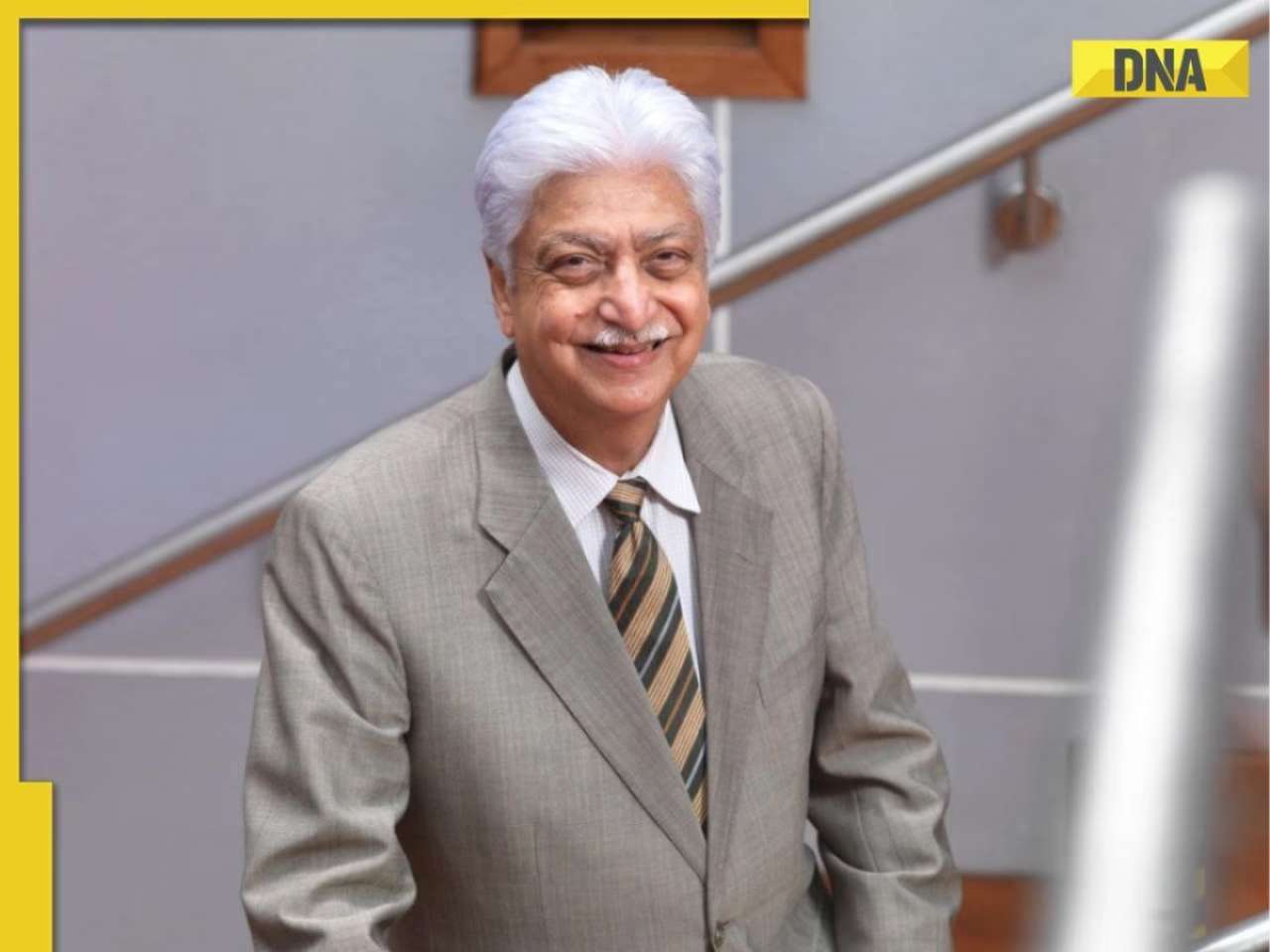 Bad news for Azim Premji as Delhi HC directs Wipro to pay Rs 200000 to ex-employee due to...
Bad news for Azim Premji as Delhi HC directs Wipro to pay Rs 200000 to ex-employee due to...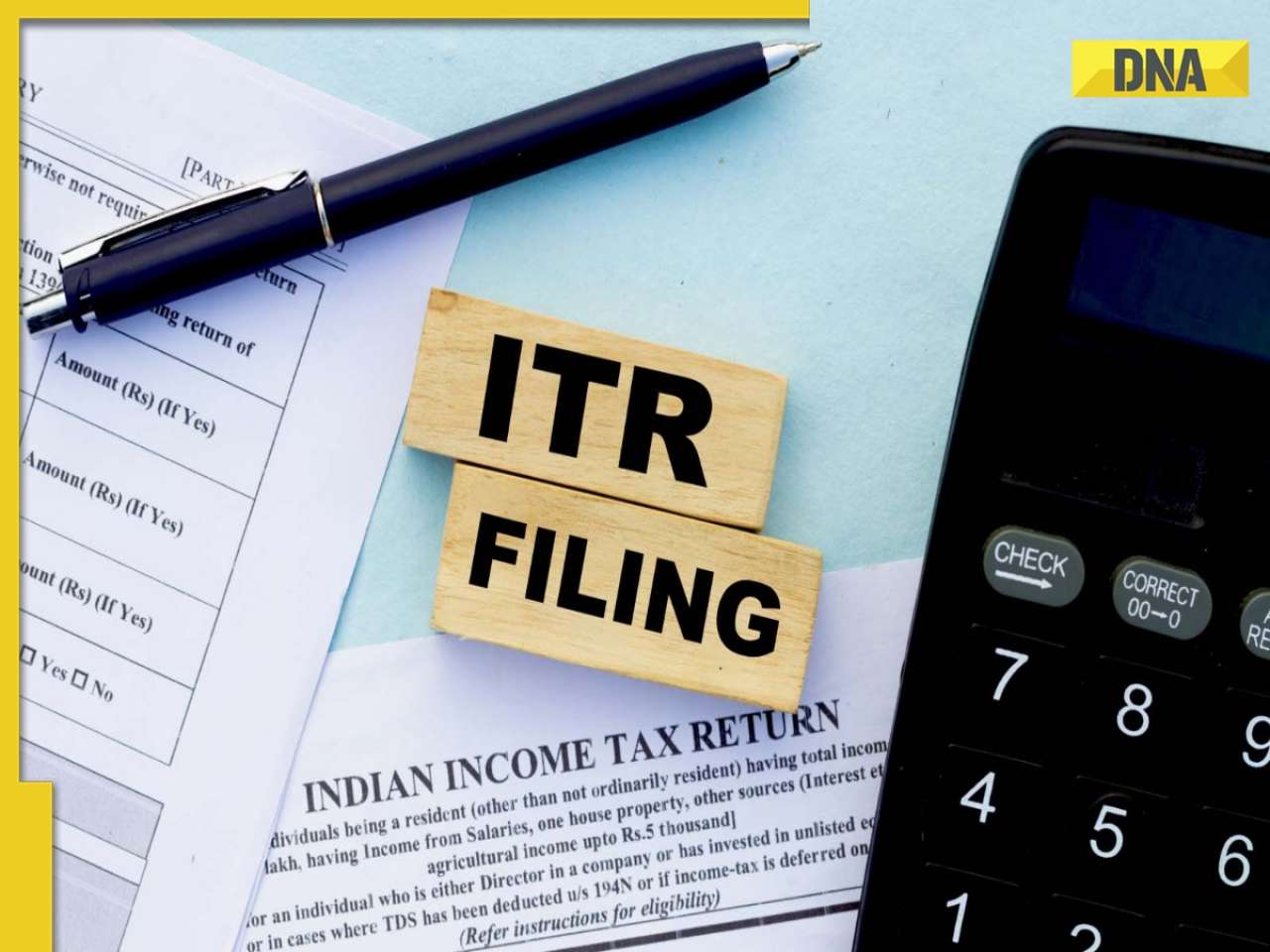 ITR Filing 2025: When will you get your refund? What should you do to avoid late refund?
ITR Filing 2025: When will you get your refund? What should you do to avoid late refund?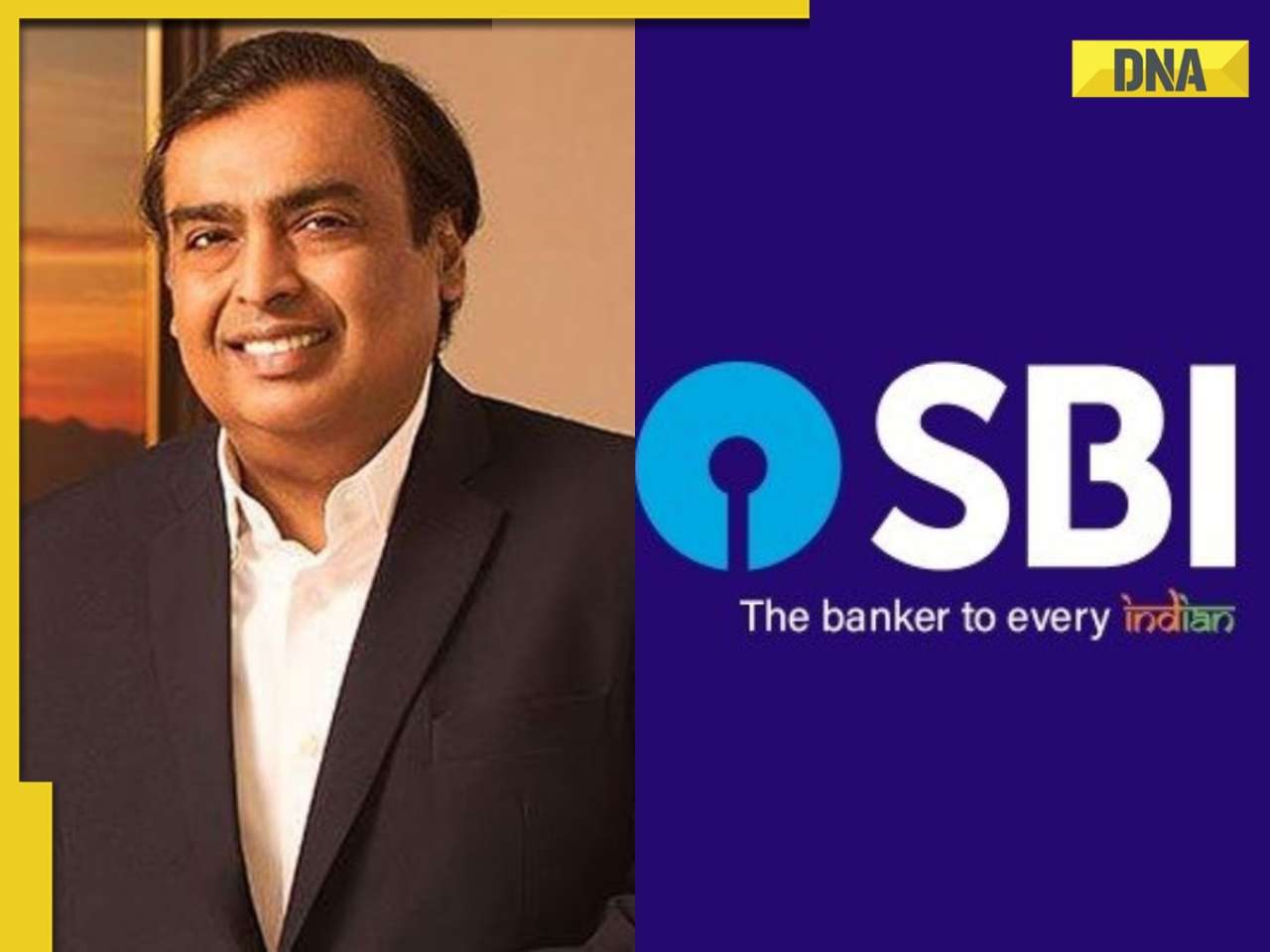 Mukesh Ambani's company's profit rises to Rs 325 crore days after acquiring entire stake of India's largest govt bank in...
Mukesh Ambani's company's profit rises to Rs 325 crore days after acquiring entire stake of India's largest govt bank in... OTT Releases This Week: Special Ops 2, Kuberaa, Vir Das Fool Volume; latest films, web series to binge-watch on Netflix, Prime Video, JioHotstar
OTT Releases This Week: Special Ops 2, Kuberaa, Vir Das Fool Volume; latest films, web series to binge-watch on Netflix, Prime Video, JioHotstar Bollywood actress Ananya Panday steals spotlight in pink Athleisure wear: See Pics
Bollywood actress Ananya Panday steals spotlight in pink Athleisure wear: See Pics In PICS: Keerthy Suresh turns heads in bold colour rainbow lehenga for upcoming film promotions
In PICS: Keerthy Suresh turns heads in bold colour rainbow lehenga for upcoming film promotions From Padmaavat to Devdas: 5 Bollywood movies that spent crores on costumes and jewels
From Padmaavat to Devdas: 5 Bollywood movies that spent crores on costumes and jewels Shah Rukh Khan-Kajol’s 5 iconic love stories that had 90s kids convinced they were real couple
Shah Rukh Khan-Kajol’s 5 iconic love stories that had 90s kids convinced they were real couple India strengthens defence with successful launch of Prithvi-II, Agni-I missiles
India strengthens defence with successful launch of Prithvi-II, Agni-I missiles Deleted Virat Kohli's video resurfaces after Karnataka government blames RCB for Chinnaswamy stampede, WATCH
Deleted Virat Kohli's video resurfaces after Karnataka government blames RCB for Chinnaswamy stampede, WATCH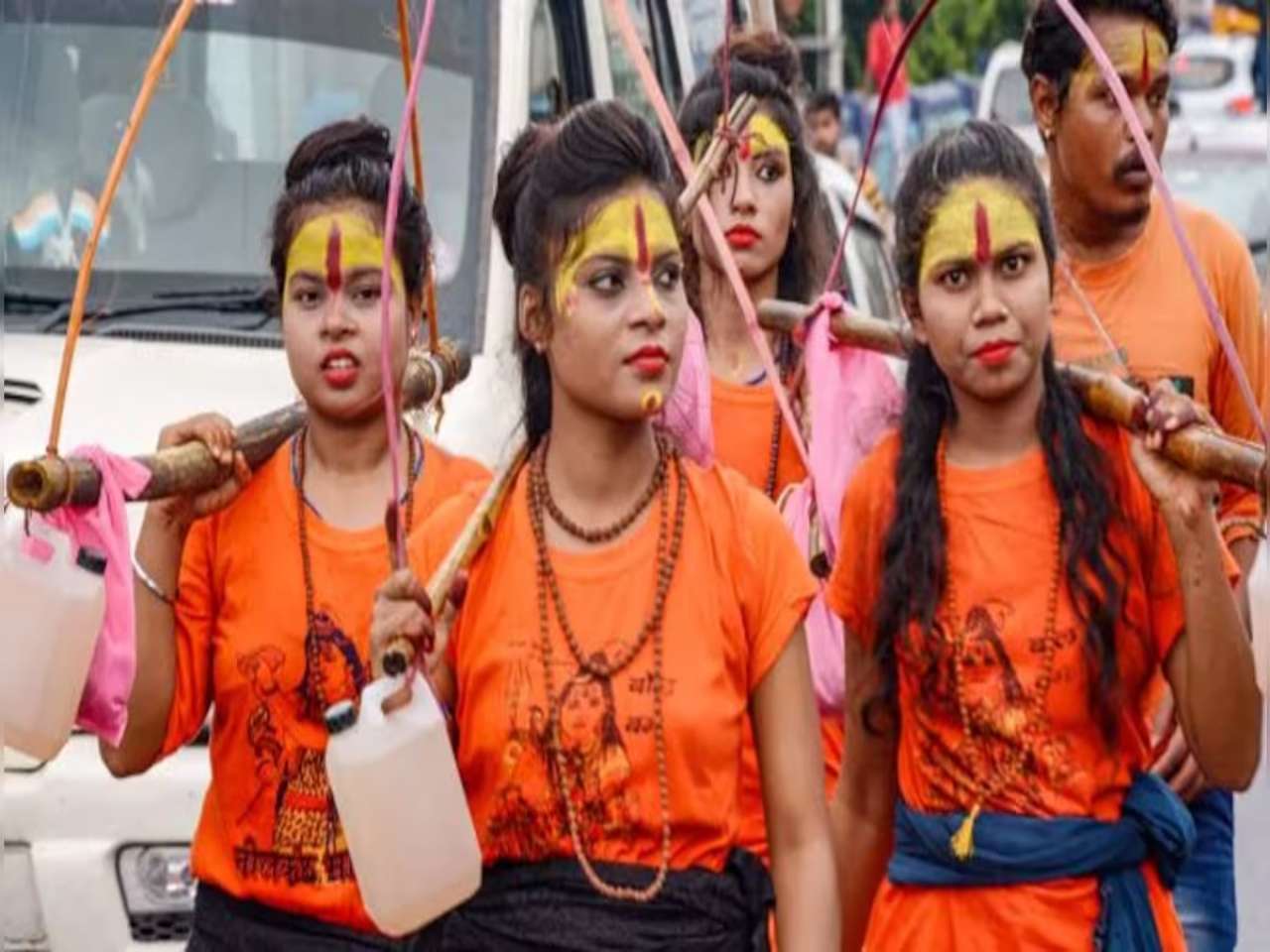 What is Kanwar Yatra, how did it begin? Lord Shiva gulped poison, then THIS happened...
What is Kanwar Yatra, how did it begin? Lord Shiva gulped poison, then THIS happened...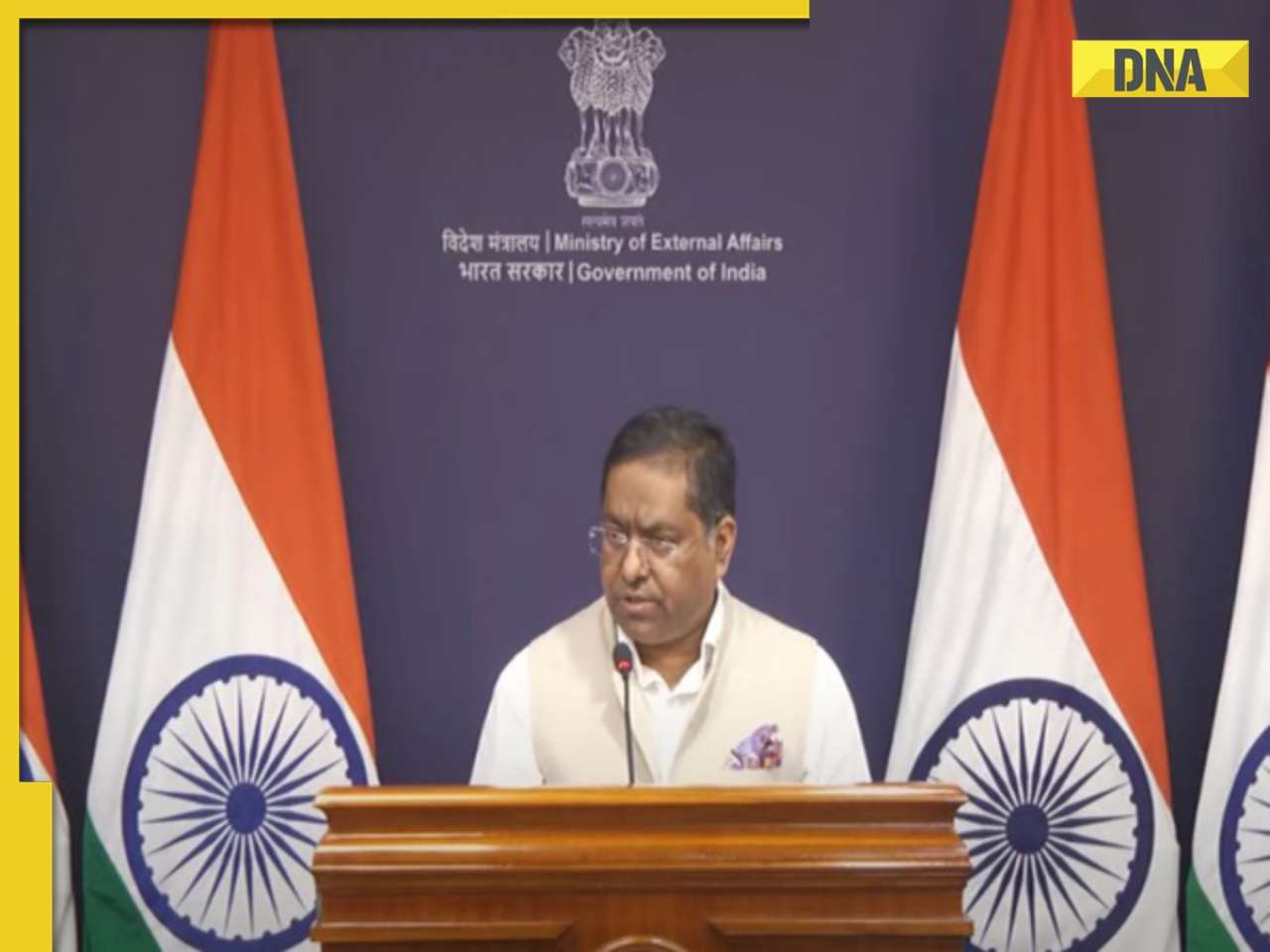 India cautions against 'double standards' over NATO Chief's sanction warning for trade with Russia, says, 'Energy needs for our people...'
India cautions against 'double standards' over NATO Chief's sanction warning for trade with Russia, says, 'Energy needs for our people...' India's BIG statement on US President Donald Trump, NATO's sanction threat on Russian imports, says, 'Not worried at all...'
India's BIG statement on US President Donald Trump, NATO's sanction threat on Russian imports, says, 'Not worried at all...' Meet woman who chose IFS over IAS even after securing AIR 13 in UPSC exam, she is from...
Meet woman who chose IFS over IAS even after securing AIR 13 in UPSC exam, she is from...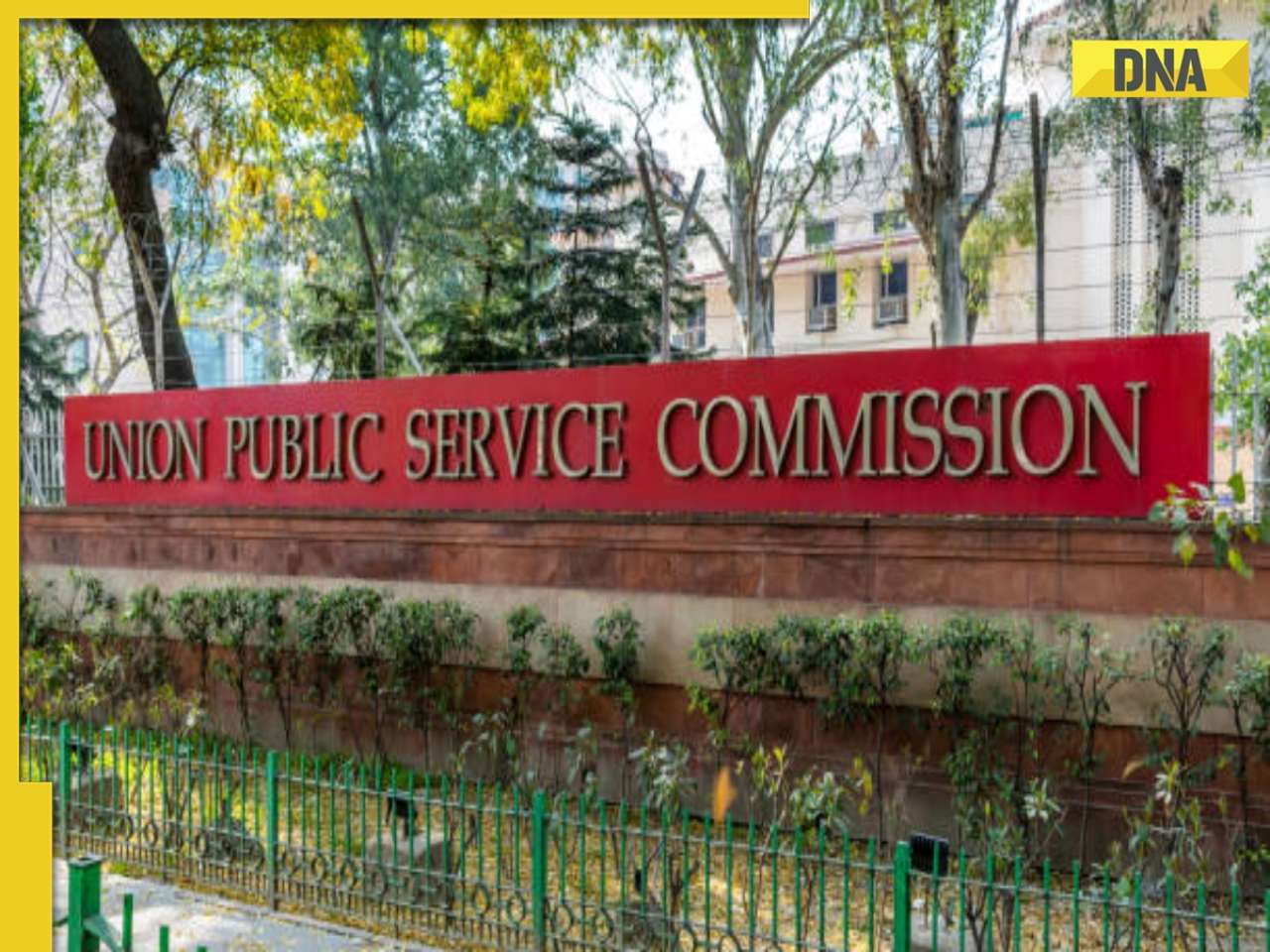 'Factory of IAS': This family produced 6 civil servants through generations, it is based in...
'Factory of IAS': This family produced 6 civil servants through generations, it is based in... Meet man who cracked UPSC exam twice, became first IAS officer from his tribe, hailed as 'Miracle Man' due to...
Meet man who cracked UPSC exam twice, became first IAS officer from his tribe, hailed as 'Miracle Man' due to... Student from this college bags record-breaking salary package of Rs 1.45 crore first time in 25 years, not IIT Bombay, IIT Delhi, IIM Ahmedabad, it is...
Student from this college bags record-breaking salary package of Rs 1.45 crore first time in 25 years, not IIT Bombay, IIT Delhi, IIM Ahmedabad, it is... Meet woman, as beautiful as any Bollywood actress, cracked UPSC exam but did not become IAS officer due to...
Meet woman, as beautiful as any Bollywood actress, cracked UPSC exam but did not become IAS officer due to... This luxury car is first choice of Indians, even left BMW, Jaguar, Audi behind in sales, it is...
This luxury car is first choice of Indians, even left BMW, Jaguar, Audi behind in sales, it is... Kia India unveils Carens Clavis: Check features, design changes, price and more; bookings open on...
Kia India unveils Carens Clavis: Check features, design changes, price and more; bookings open on... Tesla CEO Elon Musk launches most affordable Cybertruck, but it costs Rs 830000 more than older version, it is worth Rs...
Tesla CEO Elon Musk launches most affordable Cybertruck, but it costs Rs 830000 more than older version, it is worth Rs... Planning to buy a Maruti Suzuki car? Prices set to rise by 4% from...
Planning to buy a Maruti Suzuki car? Prices set to rise by 4% from... Audi launches Audi RS Q8 2025 in India: Know price, specifications and unique features
Audi launches Audi RS Q8 2025 in India: Know price, specifications and unique features 









)
)
)
)
)
)
)
)
)
)
)
)
)
)
)
)











